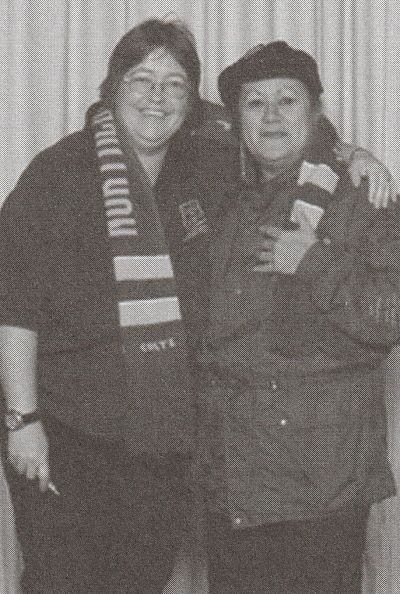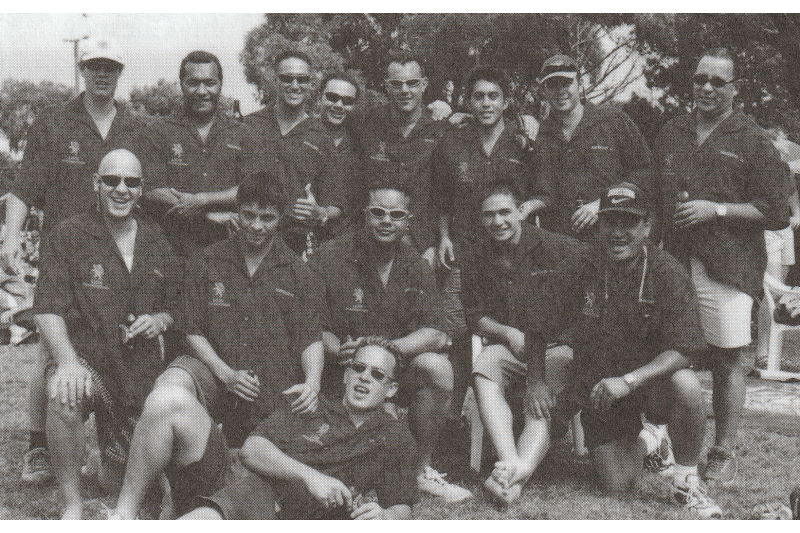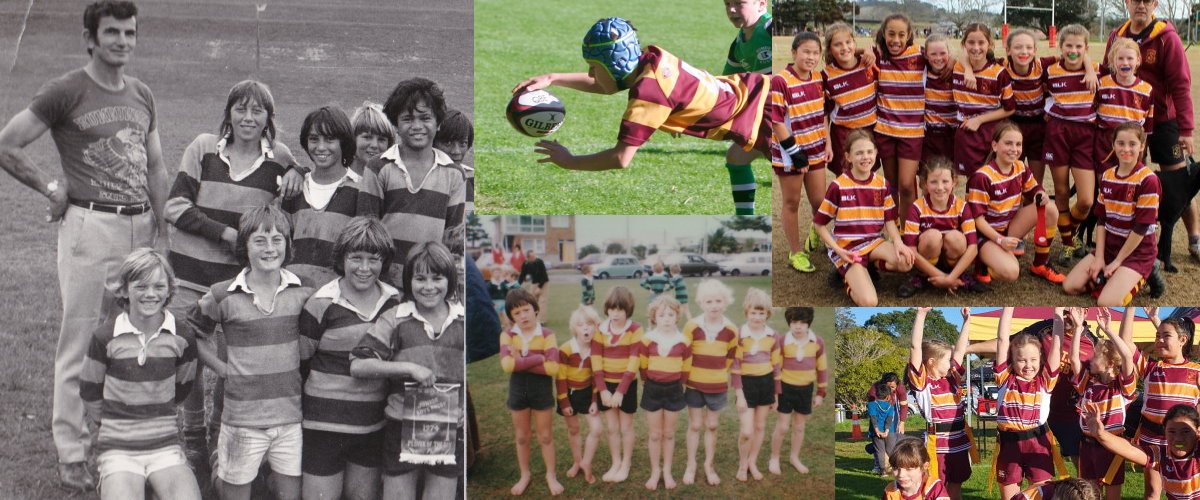
1990's at the Northcote Rugby Club
A
has been added.

The House of Pagani was invited to become the club's major sponsor in 1990, Colin Henderson indicating that he was only too happy to be associated with the club. He weighed in with a five-figure cash contribution, along with thousands of dollars worth of 'product' for most of the club's teams as well as the hockey and netball teams.
The Birkenhead Licensing Trust, which had been after the club's account for many years, finally made an offer that could not be refused. Apart from making sense for the club to deal with the 'local supplier' they made a large cash contribution spread over five years and agreed to sponsor the club personality of the week.
The club's mortgage was paid off, a marvelous effort with almost $200,000 having been paid back over five years.
It was a good feeling being mortgage free, although a term loan was arranged to repay the debenture holders and complete a couple of projects. The club's bankers welcomed the approach with open arms, so financing wasn't a problem.
Brad Meurant's seniors enjoyed another stunningly successful season, not only retaining their championship title but doing so undefeated. In the final Meurant's men put away a North Shore team that was missing Buck Shelford 22-12, scoring three tries to one.
Richard Turner was the hero with two tries, which gave him 29 for the season (an amazing tally for a forward), while Richard Kapa grabbed the other. Steve Eskridge landed two conversions and two penalty goals. According to the Herald report, the stars, besides Turner, were Brett Bedwell, Dave Mayhew and Kim Libby.
The club rewarded the squad with a dinner for players, wives, girlfriends, sponsors and life members plus a few invited guests. Blazers were presented to the coaches Meurant and Cederwall.
In addition, with assistance from the House of Pagani and Air New Zealand, Helen Meurant was able to take her family to Hawaii for a well-deserved 10-day break. This was in some way a reward for the efforts of her husband.
Richard Turner, who was named Player of the Year, won selection in the All Black Development team that toured Canada, John Mayhew was reappointed All Black team doctor and Richard Kapa played for New Zealand Maori.
Northcote players who represented North Harbour in 1990 were Turner, Kapa , Paul Carlton, David Mayhew, Paul Terekia and Ron Williams.
Having narrowly missed selection in the past, Kapa was this year chosen for New Zealand Maori for matches against Auckland and New Zealand Universities.
The Senior C Maroon team took out the North Harbour Trophy for the fourth year in a row, notwithstanding some pretty tough competition from the Black team, but the side's great team spirit saw it through .
The Restricted Grade team drew the plate final, enough to secure the North Harbour club championship trophy for the first time in four years.
The under-21s decided on New Caledonia for their end of-season trip.
The junior boys once again had an interesting season with games against teams from Tawa, Tauranga, Manurewa and Dargaville. In addition, they hosted a team from Teachers North in Brisbane.
All teams, from the under-19s up, were fitted out with new gear supplied by Lenco. Some problems were experienced with the jerseys, mainly through laundering techniques. However, Lenco demonstrated its genuineness to be the major supplier of club playing jerseys by providing an extra 100 jerseys before the end of the season.
The 1990 Easter Show was almost a disaster. For the first time since 1974, the club contemplated a loss with three days to go. Extra efforts were put in which resulted in a modest profit. Post mortems identified the problem: a poor location, plus the bus drivers going on strike during the first week.
This was the first year under the new North Shore City Council, with the movement of personnel causing problems. Terrible wet weather made the council's job challenging and many decisions had to be made concerning ground closures. Herb Merritt retired as club manager because of ill health, his successor being Brian Corliss. Many applications were received for the position.
Don Sattler, the grades delegate since 1985, had to resign due to his workload with Telecom. He was replaced by Gary Newman who moved up from junior boys delegate.
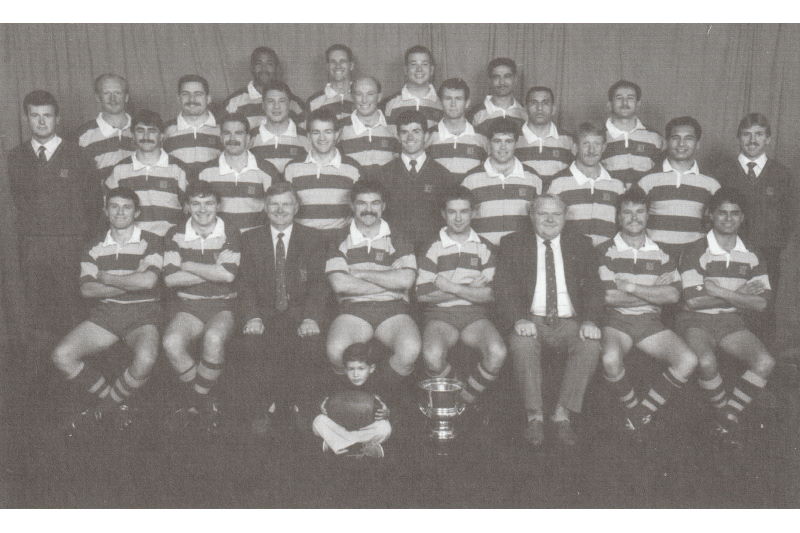
The 1992 season will not be remembered as one of the more memorable in the club's history, not administratively, financially or in terms of on field performance. Club administration suffered with five committee members, including the chairman, having to be replaced during the year.
The club was fortunate that a life member and former president, Bruce Blackett, was able to step into the breach and get the committee functioning smoothly again. Bruce had done this before and was well equipped to get the club moving for ward again.
A profit for the year of $13,091 was achieved thanks to a grant of$23,930 from the under-23 touring team fund. After the funds were raised, the trip had to be aborted at the last moment. A stipulation of the grant was that the funds had to be used to upgrade club facilities and they were duly used to pay for the cost of the paving outside the changing shed.
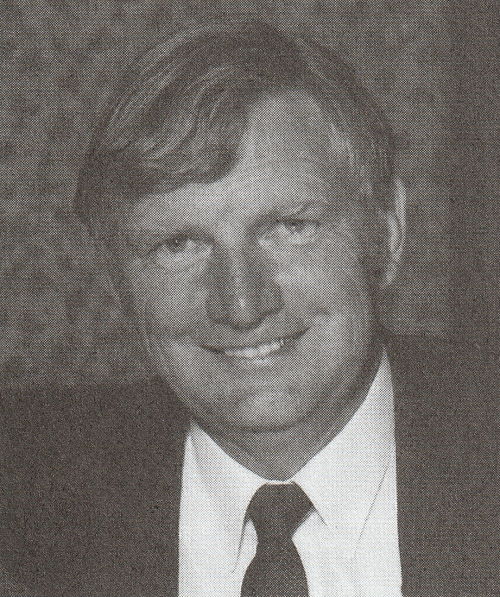
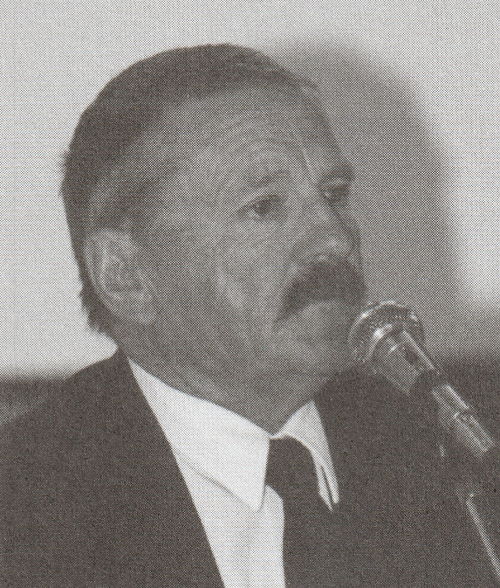
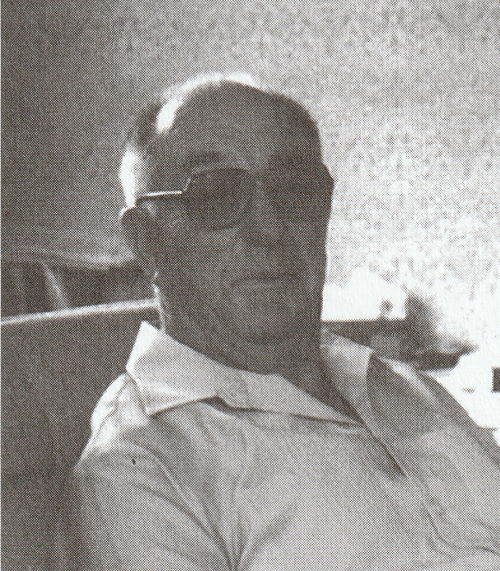
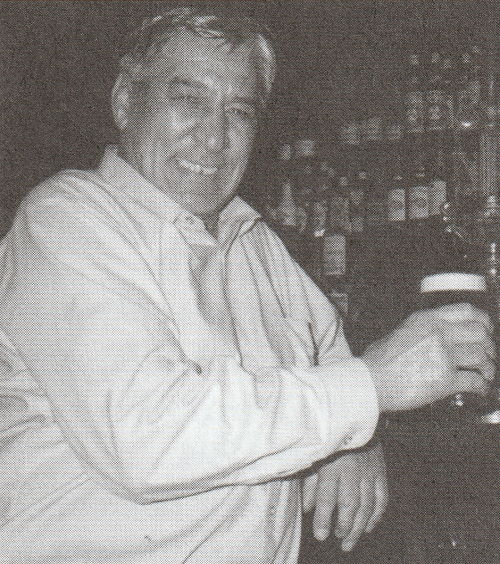
Although the senior team, coached by Nick Trimble, per formed worthily, injuries to key players and the unexpected transfer of a number of key individuals to other clubs meant Northcote failed to complete the hat-trick of victories club stalwarts anticipated.
The team played entertaining, positive rugby and was a credit to the club and its coach.
A function was held at the Birkenhead Trust to honour Kim Libby when he registered his 200th appearance for the seniors, a remarkable achievement. Mick Sweetman and Craig Burgess brought up 100 games.
Six Northcote players wore the North Harbour jersey in 1992: veterans Ron Williams and Richard Kapa (who brought his haul of tries for the rep team to 51) plus Dave Mayhew (who had an All Black trial and played for a New Zealand XV), Richard Turner, Paul Carlton and Craig Burgess. In addition, Ross Leinert was selected for the New Zealand Police team.
Peter Blackett and his team won the Senior C champion ship for the fifth consecutive season, with team spirit - on and off the field - again being exemplary.
This was also the year in which Northcote fielded its first women's team.
The junior boys committee spent a lot of valuable time endeavoring to overcome problems with the JB1 team but overall the junior teams performed with distinction. Thirteen boys won representative selection, five in the Walter Dickson and eight in Roller Mills teams.
Three valued club members died during the year: Frank Bower, father of Neil and one of Northcote's staunchest supporters, Darcy Gilchrist, a loyal supporter, and President's Grade player Jeff Kemp, who had spent many hours coaching various junior boys teams.
Bruce Blackett, chairman at the start of the 1992 season, announced that he would be stepping aside at the end of July. His commitment to the new North Harbour Stadium had to take priority and he felt he couldn't do justice to both.
He also considered it was time to hand over the reins to one of the young bucks, and so on 27 July, the management committee elected Mark Jakich as its chairman.
The club, like the rest of the business community, had been adjusting to the harsh economic conditions that had prevailed in New Zealand for the past several years. This meant cutting back on labour costs and maintaining a firm control over expenditure. In spite of this, the club still ran at a loss for the year.
Several fresh initiatives were introduced during 1992. The first was the establishment of a board of management, replacing the old policy and finance committee; the second was the student scholarship fund (for which $2,500 was set aside). And later in the year the constitution was amended to allow for the formation of a board of management which basically replaced the old policy and planning committee. This allowed the club to appoint members from outside the committee, which it did.
Eighteen years of quickfire raffles being sold at the Easter Show came to an end in 1992. Keith Weber and his commit tee had first organised these raffles in 1974 to help raise funds for the 1976 world tour. Responsibility for them passed over to the club, the profits from them making it possible to establish the new clubrooms and generally provide funds for the club.
The club celebrated the selection of its fourth All Black, Richard Turner being chosen for the centenary test series against the World XV. He celebrated by scoring a try on debut at Lancaster Park.
The senior team, prepared by Bryan Craies, finished fourth amid the sadness of losing its new assistant coach Ray Dellabarca, who lost a long battle with cancer. Ray was in his first year of association with the club. A former Wellington player and coach, he had coached at Waitemata and Carlton after moving to Auckland.
Dellabarca was one of five prominent club members to die during 1992. The others were:
Louise Heath, wife of Pat and mother of Phillip, Gerrard and Tim, all senior club players. Louise was an ardent sup porter of the club and a keen proponent of the game, never being afraid to enter into debate on current topics. She was a tireless worker for the junior boys.
Kevin Atherfold was a keen supporter of the Restricted team and an occasional player. The circumstances of his death were a terrible tragedy and shocked the club. Measures were taken with the sauna to ensure it would never happen again.
David Marks lost his long battle with cancer. He was a long standing and avid supporter who, even after moving to Northland, retained his interest and involvement. A former committee member and team manager, he was a great worker who debated strongly on behalf of the club.
Throughout the year North Shore City Council staff worked on the drainage of the Harvey Wright Fields, which included sand slitting the new all-weather training track. The touch module was transferred to Northcote College while the drainage work was in progress.
Herb Merritt's Senior B team finished third with the Senior C team's long winning streak finally coming to an end. The Black team finished a creditable second with the Maroon team, which nearly didn't happen, coming home fifth.
The Restricted team, coached by Steve Corbett and Eddie Meechan, also finished second with the under-19s reaching the championship final before going down 8-11 to East Coast Bays.
In only their second year in existence, the Northcote women's team, coached by Red Kirkpatrick and Maurice Beazley and managed by Sue Panapa, proved highly competitive, winning the Plate in the ARU's women's competition. Captain Kay Kapper was selected for the Auckland team.
For the first time since 1974 the club organised a senior prizegiving dinner. Seating and feeding 270 members and guests was a major undertaking but the evening proved a huge success.
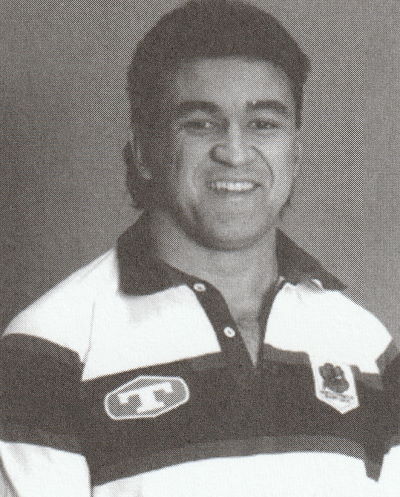
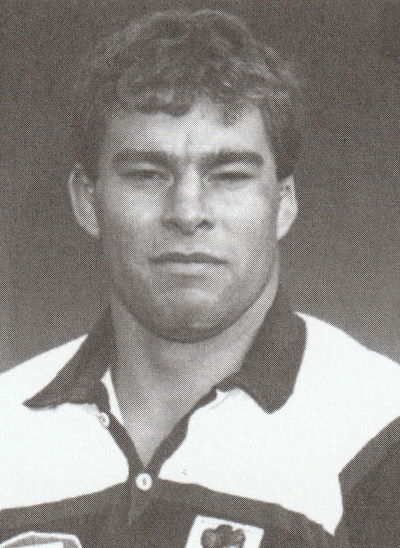
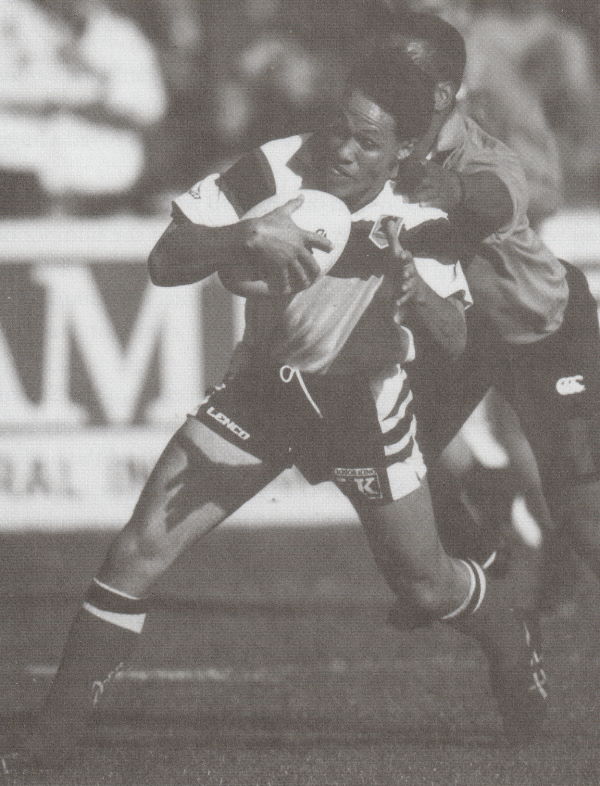
Anti-discrimination won out in 1993 with Junior Boys being renamed Junior Rugby in recognition of the number of girls now playing the game!
It wasn't the greatest season for Northcote: the seniors were often depleted because of representative commitments and finished among the also-rans.
But there were heartening performances from the Senior C Black team which finished runner-up, suffering only two losses, the senior C Maroons, the Restricted' s and the under- 21s who all qualified for the championship rounds.
Also, the women's team enjoyed its best season, coming in fourth behind Ponsonby, Marist and Otahuhu in the ARU competition.
Two newcomers to the club, Api Talamaivao and Alan Kingsbury, proved valuable acquisitions, on and off the field. They boosted the senior squad in which 'home grown' players such as Greg Healy, Warren Martin, Darrin Robertson and Arran Swift, among others, made their mark.
Richard Turner, Ron Williams (who extended his number of appearances for North Harbour to a fresh record of 128), David Mayhew and Richard Kapa once again wore the representative jersey.
The Senior Bs struggled when key players were taken away to fill in for the premier team but they still managed to win the final of the Plate championship.
Major contributors to the cause were Paul Barnard, Henry Tohu, Shane McQuinlan, Greg Healy and Alan Davies.
There was great sadness with the sudden passing of the team manager, and great mate, Graham 'Pork Bones' McEwen. He was the backbone of the team, organising gear, providing support and a friend to all. His organisation and leadership combined with his rich humour and that great laugh he possessed, will always be remembered.
The women's netball team made an end-of-season trek to the Kurangaituku tournament at Rotorua, fielding four teams. Greater success was achieved socially than on the courts!
The annual prizegiving dinner was held at the club. Once the formalities were completed, the evening gave way to karaoke entertainment. What a shame the New Zealand Idol judges weren't among the crowd that evening!
Sadly, Northcote lost one of its great troopers in 1994, life member Chum Arblaster. Uncle Chum, as he was known to all, was a tireless worker on behalf of the club and was patron at the time of his death.
Another valuable club member who passed away was Win Tatana. His wisdom and knowledge of rugby made him a delight to listen to. He coached several Northcote teams over the years.
The name most featured throughout Northcote's 75-year history is Arblaster. Since 1929, there has seldom been a committee appointed that didn't have at least one Arblaster.
That three of them have become life members speaks for its self. The four original Arblaster's were brothers - Don senior, a foundation member of the club. Stephen, who was stricken by polo; Chum (christened Charles), who occupied just about every position going in the club and Gus.
Collectively they produced five children who have also been intricately involved with Northcote - Hugh, Don junior, Mark, Rob and Peter.
Two of Hugh's offspring Clinton (who became public relations man for teh Harbour Union) and Justin (an U19 player of considerable talent) are helping perpetuate the name.
Rob's son Brady is a physiotherapist who looked after the club's senior and U21 teams.
The three Arblaster's who have been honored with life membership are Don senior, Don junior and Chum.
The new senior coaching duo of Trevor Snookes and Graham McKean injected team spirit back into the senior squad who responded with enterprising rugby.
A new sponsorship proposal was launched. Instead of having one main sponsor, the club decided to sell 100 proposals and to draw the sponsor from these companies. In the event, 70 proposals were sold, which represented a satisfactory result first up. Kirk Motors North Shore was the successful company. The downstairs bar was constructed complete with carpeting and was named the Snow White Lounge. A fascinating selection of memorabilia, plus some of 'Snow's' personal items, were used to decorate the bar. A few years on, Dame Thea Muldoon, Sir Robert's widow, presented the late prime minister's tie collection to the club. Appropriately, the collection is located in this lounge.
Other acquisitions were a new glass washer for the bar, an upgrade of the curtains for both the restaurant and the Snow White Lounge, a flashy sound system with improved speakers in the main bar area and, of course, the development of a new changing room.
The touch module was once again run by Dave Simpson and his committee. Splitting the module over two venues made life challenging but with the council preventing Northcote from fielding the number of teams it wanted the club had no option but to spill over to the Northcote College fields.
Auckland's water shortage made it doubtful at one stage whether the touch competition would be completed.
The Birkenhead Licensing Trust made a grant of $6000 to the club.
David Mayhew, Richard Turner and Ron Williams represented North Harbour which enjoyed its most successful season in getting through to the NPC final (at Onewa Domain) before losing to Auckland. This would be Ron Williams ninth and final year as a Harbour representative. he finished on 145 appearances, a record that still stands.
The 1995 season started on a positive note with the 100 Club, launched the previous year, boosting its numbers from 70 to 83. The winner of the draw was Yartons and as they were celebrating 60 years in business and 50 years as supporters of teh club, their naming as sponsor couldn't have been more appropriate. Bruce Yarton has been a long time supporter of teh club as was his father Bob before him.
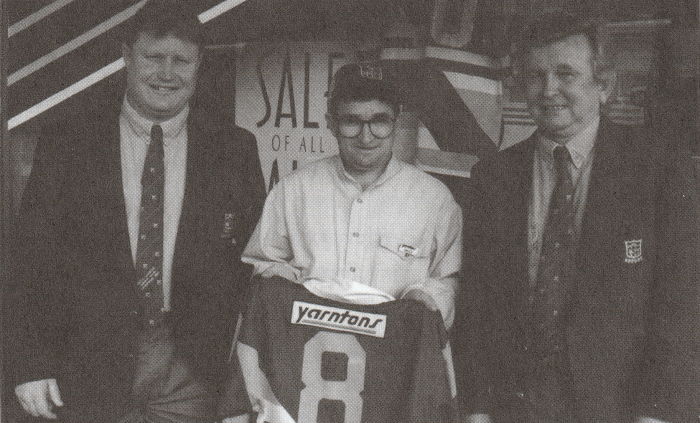
It was shortly after the sponsor's draw that the club lost its manager, Don Cameron. This was a tragic loss as Don had become a vital member of the Northcote rugby family and really had the club ticking along nicely. It took many hands to ensure the club continued functioning at the same level he had achieved.
Once again, Gaylene Blake stepped in to assist and for a short time Herb Merritt also helped to keep things running.
Jim Baker eventually took over as club manager. New carpet was laid in the clubrooms and tables, chairs and leaner bars were replaced throughout the club. A subcommittee comprising ]ill McEwen, Don Arblaster and Kim Corbett was appointed to reorganise the social scene. They had the gym area reduced and instigated fundraising to complete the Snow White Lounge. With help from many of the 'Friday Nighter's', additional furniture and flooring was installed.
On the field, the season produced heartening results. The senior A team, from whose ranks David Mayhew and Richard Turner represented North Harbour, qualified for the championship finals.
As always, for a senior A team to be successful, it needs the support of a strong senior reserve team. This was achieved through the coaching efforts of Lee Maihi and Kieran ]ones.
Their team finished in fourth place, losing its semifinal 9-8. Joe Mafileo, an exciting footballer, was selected to represent Tonga at the World Cup in South Africa.
After a slow start, the Emerging Players began to show form. Coached by Rod Samuels and Dave Newman, they made the top five and went through the Plate round undefeated. Manager Kim Corbett suffered an illness but returned to finish the season with his team.
The under-21 side, coached by Brett Bedwell and Richard Kapa, was extremely young and struggled accordingly.
Northcote again fielded two teams in the Open grade, the Black team being coached by Peter Blackett and the Maroon team by Steve Greenslade. The Black team made it through to the grand final before losing. For a bunch of guys well into their forties, this was a grand achievement. Most clubs would have diverted them to the President's grade but not Northcote.
The Restricted team missed the top five but won the North Harbour union President's Grade Trophy, which goes to the best and fairest grade team for the second year in a row. The boys also claimed the Mahurangi Log for the union's Restricted grade sevens tournament for the second year running.
History was created in 1995 when the junior boys team travelled to Australia. Coached by Ces Jack and Kerry Markwick and managed by Cathie ]ack, they were a successful combination. Their Australian itinerary was put together by former president Keith Weber who these days operates as a tour operator in Sydney.
Dave Simpson and Julie Morris ran the touch module effectively. Unfortunately, the council forced the club to reduce the number of participants which meant the club lost teams to other modules. This impacted on the cash flow at the bar during the summer months.
The council did major drainage rectification during the summer and added an underground sprinkler system. The Lion Breweries contract was renewed for another three year term. Although the cash content was diminished the allowances for promotional gear, liquor and entertainment (such as bands and discos for special occasions such as prizegiving and World Cup night) made it an attractive package.
Northcote has always been a 'Lion' house. The Birkenhead Licensing Trust provided two grants totalling $7500. This was used in the junior section and also for educational scholarships. The club allocated a total of $3000 towards scholarships during the year.
The mortgage owing on the building was $16,000. At the AGM in 1996 the decision had been taken that the club would be, in future, be administered by a board of directors.
The inaugural board, which took effect from the commencement of the 1997 season was: Adrian Keeling, chairman, Bill Henson, Dave Newman, Paul Liddington and Lloyd East. They worked with president Don Arblaster and a team of finance men and delegates.
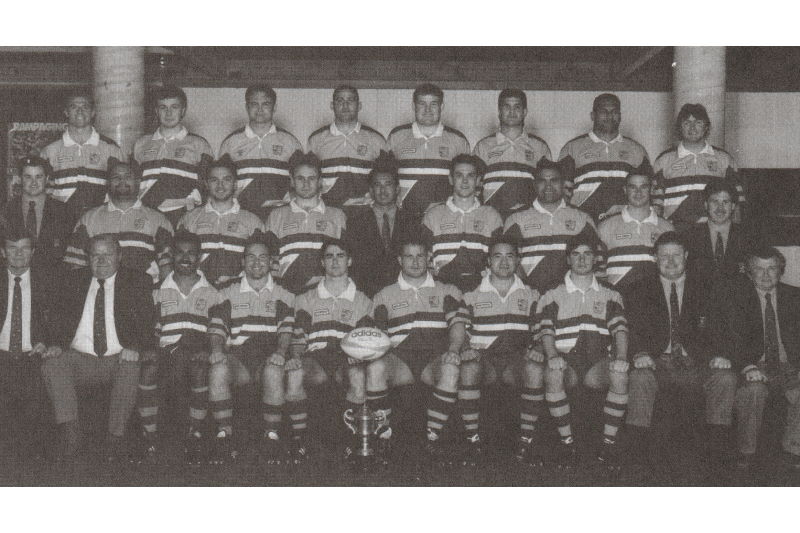
At the conclusion of the 1995 season, a business plan for junior rugby had been introduced. Having accepted the objectives, the coaches and managers set out to implement the plan.
It was accepted that the days when a scratch team of volunteers could oversee countless junior teams had passed and a more professional attitude was now essential. As a consequence, a specialist group was selected to comprise the 1996 junior rugby committee, their objective to build a strong foundation for the future of junior rugby at the club.
Coincidental with formation of that committee was the establishment of the Northcote Junior Rugby Supporters Club headed by Kerry Markwick (chairman) Robbie Hall ( treasurer), Joanne Torrens (secretary) and a committee of Kerry Buchan, Vicki Ratcliffe, Christine Dow and John Beavis .
Their role was to retain the interest and involvement of players who had moved on to secondary schools, encouraging them to return to the club when eligible to do so. Peter Sangster and Peter Greenwell, who had direct involvement in colleges, agreed to help stimulate interest by promoting the club's willingness to support the school.
During the year, junior teams travelled to Tauranga where they won seven games out of seven, while the club received visits from Waipu and the Sylvania club from Sydney.
The premiers failed to qualify for the championship play offs, notwithstanding a pre-season camp where clearly defined and achievable goals were established. Not the least of these was for the seniors to make the top five.
Questions were asked about the objectives of the senior reserve team . The chief purpose of this side is to support the senior As in all respects - a policy instituted largely by Brad Meurant in the heady days of 1989-90 when, under his astute guidance and with the assistance of Don Cederwall, the senior team won the championship in two successive seasons.
Those guidelines have been applied since . The senior A team selectors choose the best 15 players each week with the reserves corning from the senior reserve squad. They, in turn, field the next best 15 players which means, effectively, that the top 30 players in the club are getting regular rugby.
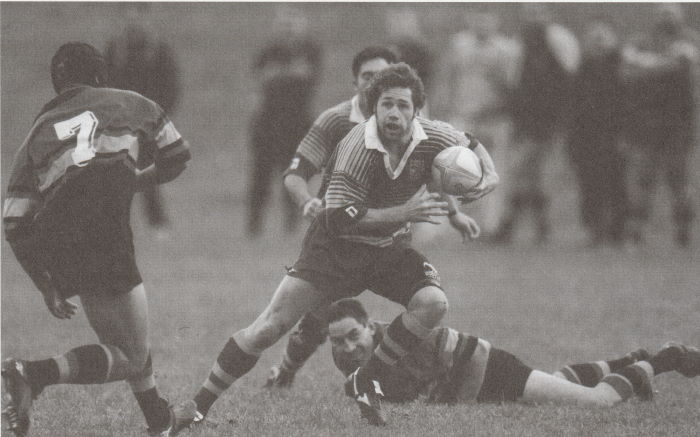
If a senior A player is injured or loses form, his position is taken by the corresponding player in the senior reserve. This applies regardless of how well the senior reserve team is performing in its competition. A classic example occurred in 1995 when the senior reserves qualified for the championship play offs but lost key players to the senior As who were also involved in a play-off situation.
The overall situation has improved with the setting up of the Emerging Players in 1995 and the replacement senior B grade in 1996 when those surplus to senior reserve requirements were seconded to the lower grades. This has meant a larger pool of players for all teams concerned. It is to their credit that these players have been prepared to 'hang in' with Northcote and not move on.
It is far superior to the old system of a senior A squad of up to 25 players where some leading players saw little on field action throughout the season.
At the club's annual prizegiving, the senior reserves won the Maurice Mutton Shield ( awarded for sportsmanship, knowledge of the rules and games won ) while Dave Newman took out the Duncan Taylor Trophy as the club personality of the year.
Greg Hayhow won the Rod Samuels and Bob Bower Cup as the outstanding under-18 player while the senior B team won the Club Captain's Cup for demonstrating the greatest club spirit on and off the field.
Paul Hickmott was the senior player of the year with Damon Haines taking out the Honours Cup, for the player showing the best team and club spirit.
Northcote's only North Harbour representatives were Alan Kingsbury and Api Talamaivao, both of whom had bit parts in Brad Meurant's team, but Graham Peacocke won selection in the New Zealand sevens teams for tournaments in Suva and Tokyo.
The board of directors had their ups and downs in 1997 with budget blowouts, caused mainly by promised sponsorships that didn't eventuate, and through uncontrolled spending. It led to the resignation of club manager Jim Baker.
Steps had already been taken to address these problems and a business plan was drawn up to ensure they didn't happen again. Peter Page, the new secretary-manager, got the club back on course. Unfortunately, Peter suffered a broken leg in a serious bike crash which made life at the club hectic while he recuperated. This was, indeed, a testing season.
Api Talamaivao was the only Northcote player to catch the eye of North Harbour selector-coach Peter Thorburn (whose team came alarmingly close to being relegated from division one of the NPC ).
The senior reserves gained a place in the top four, losing their semifinal to Takapuna, suffering a similar fate to the first grade team which lost in the last minute of its semifinal to East Coast Bays.
The second grade Maroon team won the plate final against Takapuna and the Restricted team finished in the top six from where it qualified for the plate final.
The best results came from the colts (under-19) team. This group of talented individuals went through to finish second in the round robin series, from there qualifying for the championship final where they were nosed out by Marist, 6-5.
The club hosted the Stott Cup match between Northcote and Birkenhead Colleges, Birkenhead winning. The club also staged a 10-a-side tournament (for the Bruce Blackett Cup) for North Harbour colleges with a special invitation going to Auckland Grammar which took out the title.
The senior prizegiving was attended by 250 members and guests.
Also in 1997 the junior committee established a food and refreshment caravan during games on Harvey Wright Field to assist their fund raising .
This was the year of the club captain's famous quote at an after-match function: ' Have a drive safe home .'
Marc Ellis, who had assured himself of lasting fame by scoring six tries in one match at the 1995 Rugby World Cup returned to rugby in 1998 after a stint playing league for the Warriors, and joined Northcote.
John Campbell, a Northland representative, was another newcomer and he, Api Talamaivao and Ellis all wore the North Harbour jersey in 1998, sharing in the rep team's resurgence under Buck Shelford.
The seniors finished in sixth place. With a little bit of luck they could have qualified for the top four. Only intermittently through the years has Northcote made a big rumble in the premier division, usually finishing in the pack. Northcote has usually excelled when least expected but has seldom, except in the glamour 1989-90 seasons, seriously challenged for the title. Lee Maihi, Kieran Jones and Mark Iverson did a good job in 1997, with Mark being named North Harbour coach of the year.
Paul Liddington took out the Duncan Taylor Trophy as the club personality of the year, the First Grade team won the Maurice Mutton Shield and the Restricted Grade team won the Club Captain's Cup.
The gymnasium, which was under-utilised, was closed and a new games room established alongside the Snow White Lounge .
The scoreboard was repainted in a colour scheme reflecting the club's new modernised jersey. And the club captain came up with another epic line: 'Keep that mind in date.'
Adrian Keeling wrote in his chairman's report that it was time to face up to some unpalatable facts. He drew members' attention to the fact that at the conclusion of the 1997 season the senior team was $30,000 over budget, money the club did not have. The bank financed the shortfall.
If that wasn't bad enough, two teams headed off on over seas trips without having sufficient resources to fund them. The club was obliged to make up the shortfall of $5000 for one team's creditors, pending a court case, while the other team had a contingent liability of $20,000.
Only eight of the premier team were financial which caused great concern among board members who were there to make important decisions, but they were unfamiliar with such happenings.
The 300 club went along successfully, but on draw night the fund was $4800 short, the result of certain senior players not being financial. To cap problems, beer consumption was down 20 per cent .
Obviously, certain players were misinterpreting what the modern age of professionalism meant. Plainly, several were putting their own interests ahead of the club's wellbeing.
The outcome was that meetings sharpened up and decisions were made quickly and decisively, although who would have wanted to be a board member at the time? The board of '98 comprised Adrian Keeling, chairman, Don Arblaster, Dave Newman, Gerard van Tilborg, Paul Liddington, Lloyd East and Paul Page.
The board is to be congratulated for clearing the debts and, in the process, establishing a new business plan to change the culture of the club and make it grow.
There were changes at the helm in 1999 with John Chesney replacing Don Arblaster as president and Paul Liddington taking over as chairman from Adrian Keeling.
Paul Liddington's arrival provided new administrative opportunities for the club and the new board of directors. Fresh directors were Karen |ones and president John Chesney.
The board had not previously been recognised as the ideal body to administer the club but as the year unwound that attitude changed and the board promoted a business plan that would carry the club into the next century.
It was revealed that a significant number of players had avoided paying their subs the previous season. President Chesney made it clear in February that this would not be tolerated in 1999 and arrears would be collected also.
A campaign was orchestrated by the promotions committee, led by Karen ]ones, to recoup all the previous season's bad debts and to follow through on tour fund shortfalls.
The April issue of Cotes News published a substantial list of defaulters. The ]une issue carried a number of apologies but, more importantly, the campaign, succeeded in recouping the unpaid monies as a consequence of which the club's finances were looking far healthier.
Terry Henshaw's Henshaw Group won the rights to the senior team sponsorship while the 'Family of Five', Haydn and Rollett Construction (John Wildermoth), F.R. Maloney Drainage (Russell Maloney), Endeavour Foods Ltd, Atlas Concrete and Northcote Tavern became the junior section's major sponsors. It is worth noting that John Wildermoth and Russell Maloney, of this group, played for the club about three decades back and were in the original Rum Runners team.
Since those heady days both these players have continued to serve the club but in different ways - John in team management and club administration and Russell in coaching. The club recognises and thanks them for their continued support and sponsorship.
The 'Family of Five' made it possible for the junior boys to tour to Waipu and Pukekohe and also to purchase gear and equipment.
The senior A coaching staff remained intact, with Lee Maihi and Phil Heath in charge again. This is a fine example of a junior boy (Phil Heath) progressing through the club's ranks to attain a senior coaching position. His late parents, Pat and Lois Heath, would have been enormously proud. They were tireless workers over many years for Northcote.
During the year, a five-year plan was revealed aimed at lifting the standard of rugby in the club to new levels. In June , 30 executive coaching and administration positions for the 2000 season were advertised .
Bill Henson, after 40 years with Northcote, won the clubroom $100 draw. This was the first time he had ever won a raffle organised by the Northcote club . There are those who figure he's still a few thousand dollars out of pocket!
Three Northcote players turned out for North Harbour, sevens star Karl Tenana (formerly of Wellington, who also represented New Zealand at sevens), Robbie Ford (formerly of Canterbury) and Marc Ellis.
This was World Cup year and at All Black coach John Hart's request, Ellis was trialed at first-five (the position in which he had represented New Zealand in 1993). As it turned out, he didn't progress beyond New Zealand A.
The JB1s, coached by Kerry Markwick and managed by Trish Markwick, enjoyed a big season. They won all 13 round robin matches and finished second in the 10s and 15s competitions. At season's end they visited Australia.
Also off to Australia were the 39 'delinquents' who comprised the President's grade team. With fundraising assistance from the Trough, they visited the Gold Coast. Kim and Billy Milne, mine hosts of the Northcote Tavern, were owed a huge debt of gratitude.
Cathy Jack completed 10 years as a committee member and junior committee chairperson - a wonderful achievement in a man's world. Ces Jack, her husband, is heavily involved with the Emerging Players and general coaching commitments.
Another woman who mad e a major impact in '99 was Sharon Mills, who headed the promotions committee.